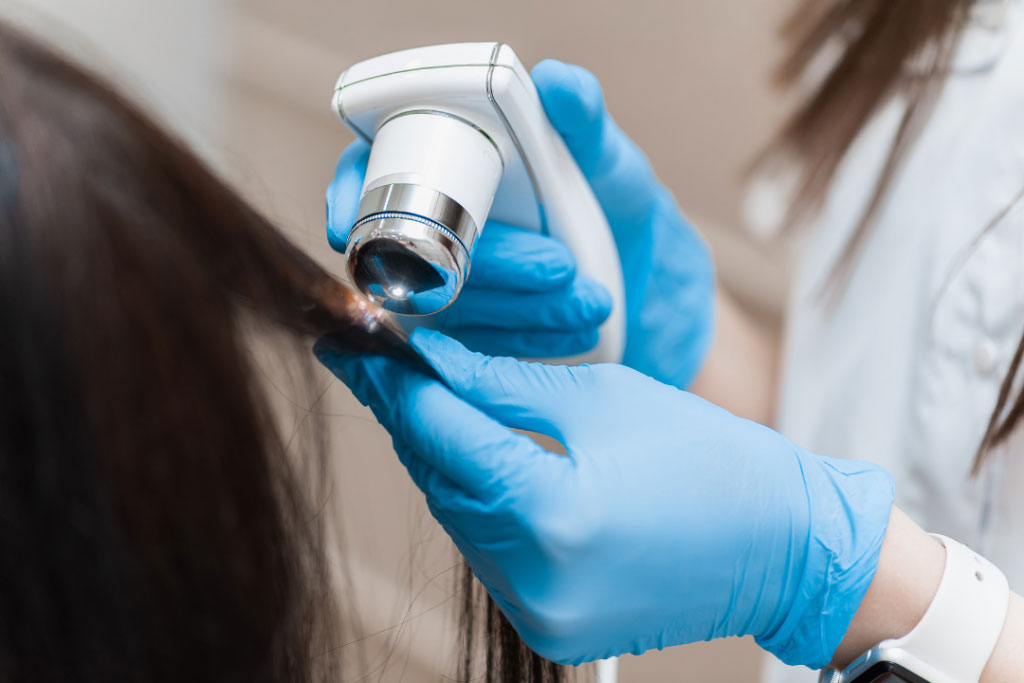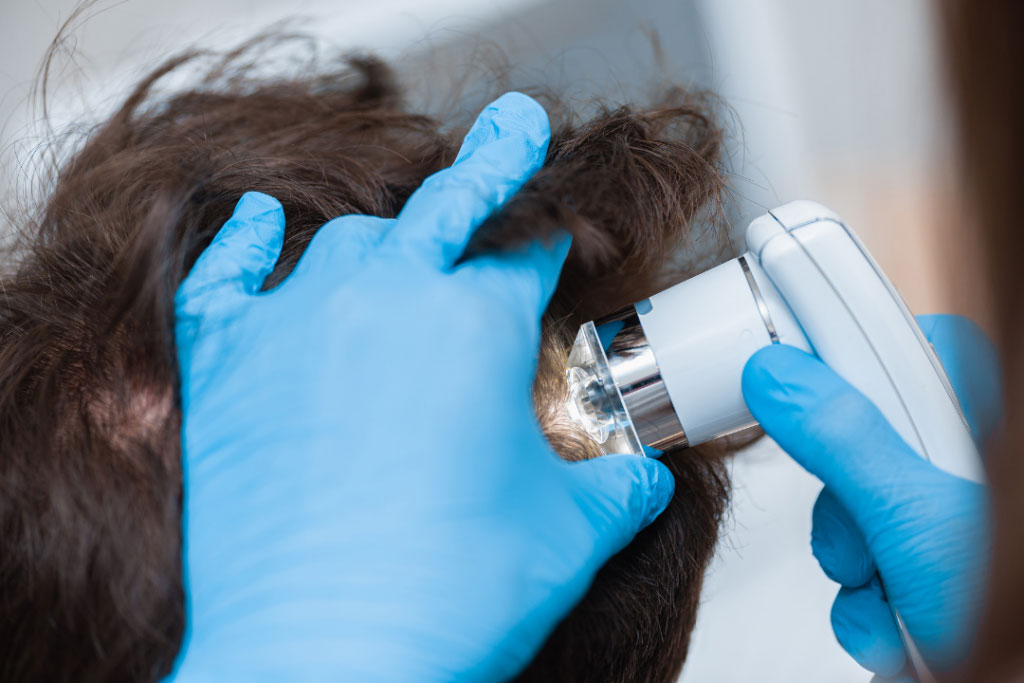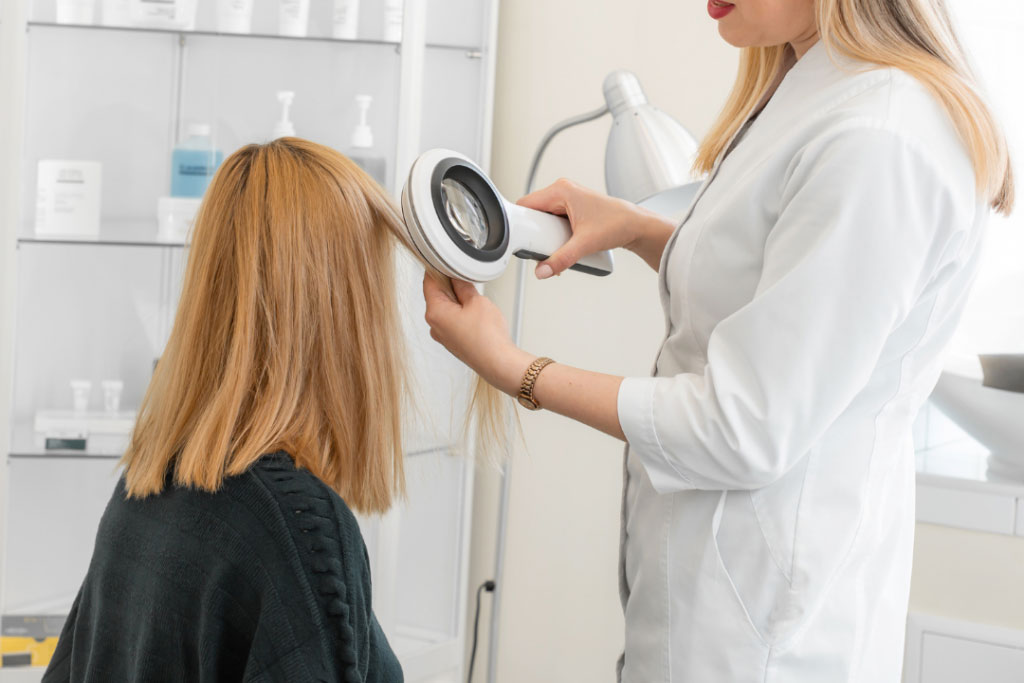What is Trichology?
Trichology is the science of the structure, function and diseases of the human hair. Clinical trichology is the diagnosis and treatment of diseases and disorders of the human hair and scalp.
The term ‘Trichology’ is derived from the Greek word ‘trichos’, meaning ‘hair’ and the suffix ‘ology’, which means ‘the study of’. Trichologists adapt a holistic approach to treatment, ensuring to take into account many different factors, such as lifestyle, diet and wellbeing as a whole, as well as the signs and symptoms present.
Hair Loss

Hair loss can cause great anxiety and distress, and there are many misunderstandings about its causes and treatments. With few Clinical Practitioners who specialize in the hair and scalp, a Trichologist is unique in the fact that their entire specialism focuses just on the hair and scalp.
Alopecia is the clinical term for any type of hair loss, especially on the scalp. It can be diffused (throughout the scalp), it can be in a pattern, it can be temporary, and it can be permanent. It is important to understand what type of Alopecia you may have so that you can treat it correctly to achieve the best outcomes possible.
Probably the most common type of hair loss is Androgenetic Alopecia. This is often called Male Pattern or Female Pattern loss. There are a number of treatment options available as well as therapies such as Platelet Rich Plasma (PRP) and growth factors, Cosmetic Options such as hair fibers and added hair solutions, and of course, Hair Transplant Surgery. A Trichologist will advise on all the available options to decide the best course of action for the patient’s individual needs.
Excessive Hair Shedding can be a very frightening condition to experience. It can make you very anxious and unsure about what to do. In many cases of excessive shedding, there are several underlying causative factors. Once identified and treated, the outcome can be life-changing and hair-changing too.
Hair Texture Problems
Problems with hair texture can be caused by overexposure to heat, strong chemicals, or many other stresses and strains to which we subject our hair.
In such cases, cooperation with the hairdresser is obviously important. It indicates that trichologists’ training overlaps both the medical and cosmetic aspects in areas not normally covered by doctors or hairdressers.
Hair texture problems usually respond very well to appropriate advice and treatment, as the cause(s), once discovered, can often be reduced or eliminated altogether.
Problems with the Scalp
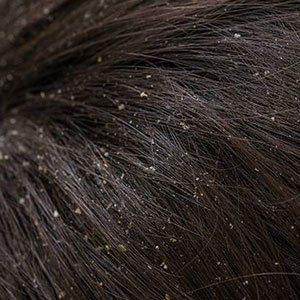
Problems of the scalp range from dandruff to more inflammatory conditions such as seborrheic dermatitis and Psoriasis. A Trichologist can accurately identify your condition and advise on treatment shampoos and Trichological treatments that will help you manage the condition very effectively. Several factors such as stress, diet, allergies, family inheritance, and medications can lead to scalp problems. A Trichologist is well placed to identify the triggers and causes to provide holistic advice to you.
As with the hair, these problems can be symptomatic of some other metabolic variation. Stress, poor diet, or even some allergies to certain foods can be responsible for the buildup and shedding of dead skin cells.
The management of hair and scalp that are excessively greasy is another area in which the advice of a qualified trichologist is often sought. Here, guidance on the right type of shampoo for any individual and its frequency of usage will be very important.
Reasons to Consult a Trichologist
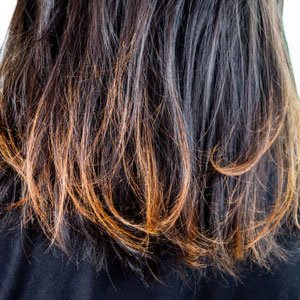
Trichologists can help clients with everything from female and male pattern hair loss to symptoms of alopecia areata. There are many hair and scalp conditions that are commonly addressed in Trichology Clinics.
Pharmaceutical Preparations
In cases of scalp disorders (particularly), your Trichologist may prescribe treatment creams and shampoos for use either in the clinic or at home. These will either be manufactured by the pharmacist or by other licensed trichologists specializing in manufacturing such preparations. People should always use these products in strict accordance with instructions.
Additional Services
When appropriate, a Trichologist can give advice to those patients wishing to be referred to members of the Hair Restoration Surgeons for hair grafting (hair transplant).
For those seeking to gain added hair (sometimes referred to as ‘hair replacement’) in the form of wigs, extensions, or weaving, we can offer guidance and appropriate referrals.
We can give advice and support to those people who habitually pull their hair. Likewise, information, guidance, and support are also given to those who have lost hair through chemotherapy treatment.
A Trichologist, although highly trained, is not able to prescribe. If prescribed medications or biopsies are necessary to obtain a complete diagnosis, your Trichologist will work with your GP and Dermatologist to provide information, referrals, and suggestions to ensure that an effective treatment plan is identified and put into place for the best outcome for you.








